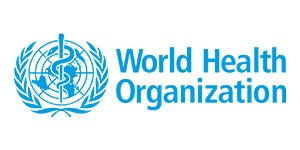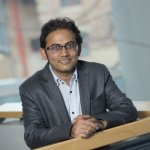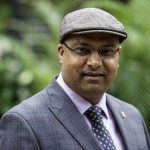
Centre for Environmental Health and Engineering
Our Centre is a designated World Health Organization (WHO) Collaborating Centre for the protection of water quality and human health.
We have a research capability in developing, implementing and managing innovative solutions and interventions for the protection of the environment and public health. We are a diverse multidisciplinary research group with background expertise in civil engineering, chemical engineering, chemistry, microbiology, virology, zoology, public health and mathematics.
Research capabilities

We provide support to international governments through international agencies such as WHO, Pan American Health Organisation (PAHO) and relief organisations such as Oxfam, UNICEF and Medicins Sans Frontier (MSF).
We undertake research activities and services that address today’s environmental and public health global challenges.
Research takes place across the following areas:
- Advanced water and wastewater treatment and resource recovery/reuse (water- energy-materials)
- Fate and behaviour of contaminants-including emerging ones- in the environment
- Water, sanitation and public health (WASH) in the developing world
- Recreational water quality; risk assessment and management
- Remote sensing, catchment surveillance, water resources management, risks and extreme weather in the context of climate change and resilience
- Urban pollution and health in cities and megacities.
- Water resources surveillance
- Modelling and management
- Pollution control and waste management.
Small water supplies research
Small drinking water supplies pose a particular risk to public health. Researchers in this group like Katherine Pond, are working with the World Health Organisation to improve risk assessments for small water supplies. We have developed two films on Risk assessment of small water supplies and Risk assessment of small water supplies in lower-middle income settings to assist communities using these supplies to carry out risk assessments to identify potential hazards to the water supply.
Sustainable wastewater treatment and resource recovery
Wastewater can generate resources and energy, such as fertilizers and biogas. Our research focuses on small- and large-scale wastewater resource recovery in developed and developing countries. Dr Devendra Saroj was awarded the Newton Prize to investigate the Water-Energy-Nutrient Nexus for future society.
Hazardous pollutants
Worldwide, the quality of drinking water sources is deteriorating. Increasingly they are impacted by a diverse range of hazardous pollutants, such as plastics, pharmaceuticals and hormones, originating from domestic use, industry, agriculture and sewage, which threaten environmental and public health. Researchers such as Tom Bond investigate the control and fate of aquatic pollutants, for example, in the EPSRC-funded project on Predicting the Polymer-specific Fate of Aquatic Plastic Litter.
Natural flood management
Climate change is increasing the risk of flood events. Natural flood management (NFM) interventions aim at restoring natural hydrological processes which slow down the storm runoff and attenuate flood risk downstream. Dr Belen Marti-Cardona is working with the Environment Agency on the numerical simulation of NFM interventions, to inform their design and optimize their flood attenuation effect. Details on a recent Strategic Priority Funds project can be found at Numerical Modelling of Log Dams: A Tool for Building Guidance.
Earth observation and digital twins for sustainable agriculture
Satellite imagery provides quantitative data of the entire Earth on regular basis. The assimilation of these data into Earth systems’ digital twins allows to finetune retrieval of biophysical parameters, such as methane emissions or carbon sequestration from agriculture. Dr Belen Marti-Cardona is collaborating with industrial partners on the research and development of products which combine global satellite data and digital twins for monitoring greenhouse gas emissions and sequestration from agriculture. These products facilitate the rewards for the farmers who implement regenerative agriculture practices.
Environmental microbiology
Microorganisms are everywhere and can be good (biotechnology, bioremediation) or bad (pathogens, viruses). Dr Bing Guo leads the Environmental Microbiology research group to develop innovative biotechnologies to meet Net Zero, and tackle One Health challenges in natural and built environments.
Collaborators
We have academic collaborators across schools and faculties within the University of Surrey including the School of Chemistry and Chemical Engineering, School of Biosciences and Medicine, Department of Microbiology, Vet School, AI Institute, and externally with international research institutes such as Kyambogo University (Uganda), Sao Paulo University (Brazil), McGill University (Canada), Penn State University (USA).
We work closely with industry and environmental and public sectors, such as WHO, UK Centre for Ecology & Hydrology, Environment Agency, British Ecological Society.
Research projects
Completed projects
Constructing model microbiomes to study microbial interactions and AMR in dairy production systems
Principal investigators: Dr Bing Guo, Dr Jennifer Ritchie, Professor Roberto La Ragione
Start date:
End date:
Funding amount: £151,577
Prizes we've won
Meet the team

Dr Devendra Saroj
Head of Centre for Environmental Health and Engineering

Dr Stephen Battersby
Visiting Senior Research Fellow, Chartered Environmental Health Practitioner, Environmental Health and Housing Consultant

Dr Thomas Bond
Senior Lecturer in Civil and Environmental Engineering

Professor Abigail Bristow
Professor of Civil and Environmental Engineering

Professor Jennifer Colbourne
Chief Drinking Water Inspector, DWI

Dr Bing Guo
Professor in Environmental Engineering and Microbiology

Dr Emma Hellawell
Research Fellow

Professor Susan Hughes
Professor of Environmental Engineering | Director of Civil and Environmental Engineering

Dr Julie Kinzelman
Visiting Senior Research Fellow, Racine Public Health Department

Professor Prashant Kumar
Co-Director, Institute for Sustainability, Professor and Chair in Air Quality and Health; Founding Director, Global Centre for Clean Air Research (GCARE)

Professor Barry Lloyd
Emeritus Professor of Environmental Health Engineering

Professor Matthias Maier
Stadtwerke Karlsruhe

Dr Belen Marti-Cardona
Associate Professor (Reader) in Earth Observation and Hydrology

Dr Katherine Pond
Associate Professor in Environmental Engineering

Professor Paul Sherlock
Formerly of Oxfam and Coordinator of Water and Sanitation Emergencies, UNICEF
Postgraduate research students

Salihu Jarmajo Ahmed
Evaluation of waste-to-energy (WtE) in Bauchi Metropolis (Nigeria): A key component to comprehensive solid waste management

Francis Bangnira
Instream wood accumulation at bridges: Exploring drivers and modelling their effect in UK rivers

Marine Diana
Hunting for bladder carcinogens

Dr Josephine Herschan
Using surveillance data to improve the water quality of small drinking-water supplies

Carla Mae Pausta
The assessment of the impact of nutrient recovery for improving urban wastewater management and protecting water quality in lakes

Sallu Pujeh
Resilience of small water supplies in Blama

Benjamin Tonkin
Leaky barriers for natural flood management: modelling their effectiveness to inform practice

